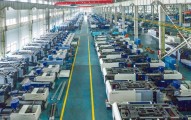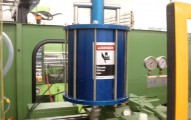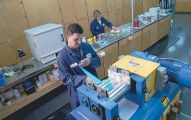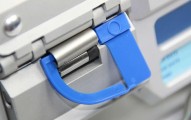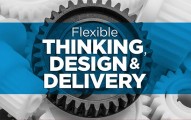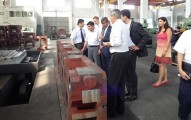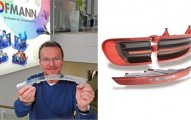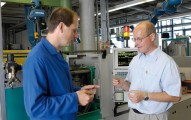French molder AdduXi to open first U.S. factory in Rochester Hills
Precision French molder AdduXi Group is opening its first factory outside of its home country — in Rochester Hills — and the top local executive said the time is right, as the U.S. automotive industry is on a roll.
“All the ingredients for success are really together in Detroit right now, and we strongly believe that AdduXi’s going to make the best of it,” said Xavier Ovize, CEO of the local plant. “This is the right time with the right product and the right place.”
AdduXi plans to create 40 jobs in the building at 1857 Enterprise Drive in Rochester Hills over the next two years, the company said in an email today.
AdduXi officials equipped the 27,000-square-foot factory with four Billion all-electric, injection molding machines, in July and August. The Rochester Hills factory already has a Hexagon Metrology coordinate measuring machine — the first piece of equipment at its quality lab.
Ovize said the goal is to begin molding parts by the end of this year. In the first quarter of 2015, AdduXi will add automated production and assembly equipment — a hallmark of the main factory in France.
The Michigan location represents an investment of $5 million to $6 million for the mid-sized French company, which has sales of about $65 million.
AdduXi Group and Billion SA are neighbors in the town of Billignat, in France’s Plastic Valley, the Oyonnax region. AdduXi in France molds tight-tolerance auto parts, many with electronics molded-in using insert molding — which the company calls hybrid parts. The firm also does reel-to-reel molding.
Customers of the tier-two supplier asked AdduXi to set up a factory in North America.
During a Sept. 11 visit to the Michigan plant, Ovize showed parts that go in every part of a car: sensor housings, window lifters, fan shrouds, part-assist sensors, connectors and sensors for electronic motors, powertrain, transmission, brakes, thermal sensors and more.
“If you want to be credible, if you want to be serious, you need to be everywhere,” Ovize said. “If you want to be successful in automotive in the U.S., you want to be represented not just with sales people. You want to be industrial. And that’s what we’re doing now.”
AdduXi was founded in 1996 and employs 235 people.
Alain Palisse, the CEO and owner, filed papers of incorporation in the United States in 2009. Obviously, the timing was not right to set up U.S. production during the recession. But this is a great time right now, Ovize said.
“Most companies that could pass through those tough years, are stronger than ever,” Ovize said. “The volumes are back up, in terms of production of cars. And manufacturers are developing new products again, which was not the case a few years ago, when everything stopped and production and development was low. Now everything’s back up. So this is a great time for all the parts suppliers and innovators because there is business. There is a need for innovation.
“Customers are demanding more. Their minds are more open than ever to new ideas. Quality levels have increased a lot. And people realize that innovation really is an important fact,” he said.
So far, the company has hired Ovize as CEO in Michigan, an operations manager, a quality manager, a process engineer and an office manager. When production begins, they will hire operators and more technicians.
The plant is highly connected in other ways, as well. Two large conference rooms have video screens for teleconferencing around the world.
The Rochester Hills part looks brand new, after extensive remodeling. AdduXi is leasing part of a building where Dana Corp. closed a factory in 2012.
Ovize is French, but he’s a veteran of Detroit, who has worked in the United States for 20 years, much of it in the rubber parts industry. The mechanical engineer helped set up three divisions for Hutchinson Corp.
AdduXi’s customers include major multinationals, such as Bosch, Brose, Delphi and Continental. Some customers said they need suppliers in Mexico, but Palisse said the molder wants to establish a good manufacturing base in the United States first.
And being in North America will help bring new customers, Palisse said. “The second row of potential customers will be probably the Japanese. We expect to work rapidly with the Japanese and the Koreans. And of course, the Americans too,” he said.


